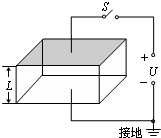Ⅱ 语言知识及应用 (共两节,满分35分)
第一节完形填空 (共10小题;每小题2分,满分20分)
阅读下面短文,掌握其大意,然后从21—30题所给的A、B、C和D项中,选出最佳选项,并在答题卡上将该项涂黑。
Basketball is a sport enjoyed by millions of people. It began in 1891.
Dr. James Naismith, the father of basketball, was a teacher of a YMCA training 21 . It trained the people to work in YMCAs. Officials at the school were 22 about the low attendance during the 23 months. They felt that people didn’t attend then because the school did not have a good sports 24 in the winter. So they asked Dr. Naismith for help. He came up with a new indoor game.
Naismith studied games being played at that 25 . he found that the most 26 game was a ball. So a ball would be part of his new game, he decided. But kicking the ball or hitting it would be too rough for indoors. So he put two 27 up on the poles. The players have to try to 28 a ball into them. Naismith then made thirteen 29 for the game. Twelve of them are still in use today. Just seven years after the game began professional basketball teams were 30 . and that’s how basketball was born.
21. A. school B. game C. team D. club
22. A. interested B. worried C. eager D. dangerous
23. A. summer B. spring C. autumn D. winter
24. A. suit B. team C. progress D. program
25. A. game B. school C. time D. place
26. A. popular B. practical C. excellent D. skilled
27. A. bags B. baskets C. flags D. sings
28. A. push B. throw C. send D. kick
29. A. persons B. poles C. rules D. balls
30. A. formed B. called C. dismissed D. stationed

